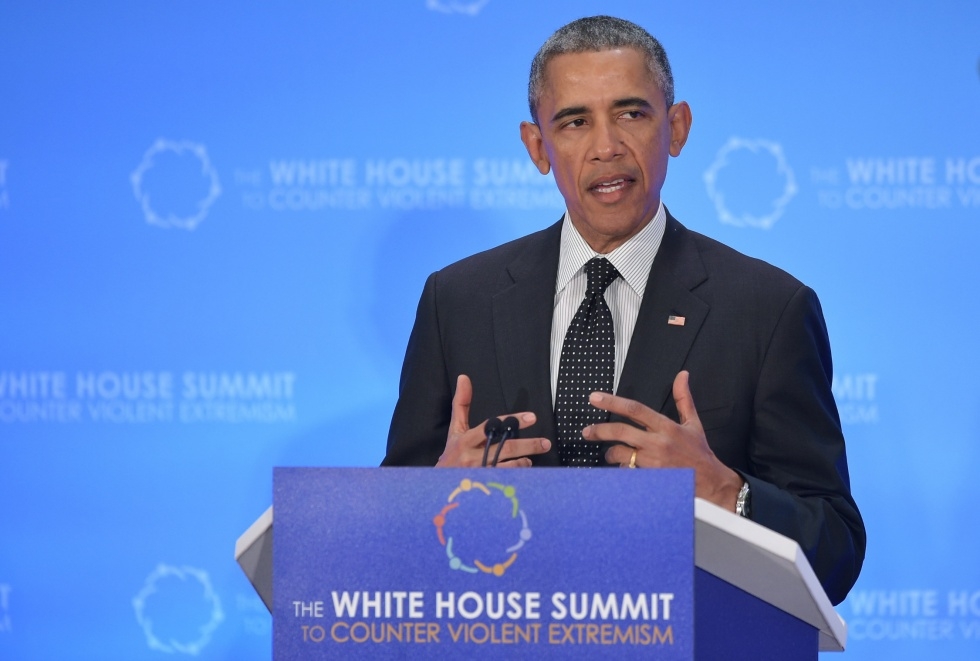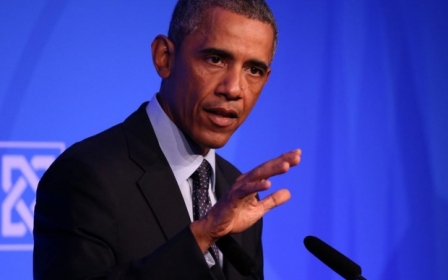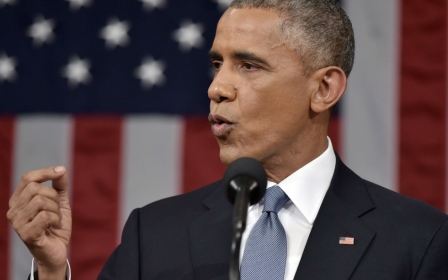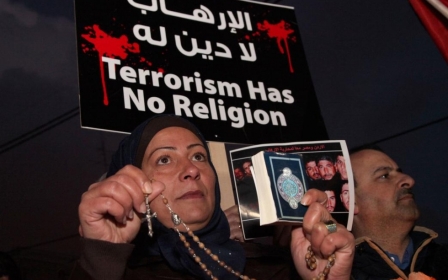US summit to fight extremism ends with little concrete action

By Jo Biddle
The US sought to unite nations around a common vision for combating extremist groups in three days of talks, which ended Thursday long on words but short on concrete steps.
In the wake of shocking beheadings and murders by the Islamic State (IS) group, as well as a series of lone attacks in European cities, governments must remain "unwavering in our fight against terrorist organisations," President Barack Obama said.
He vowed to ministers from some 60 nations to continue to hunt down al-Qaeda militants in places like Yemen and Somalia and to help shore up fragile nations to "prevent ungoverned spaces where terrorists find safe haven."
On the final day of his high-profile summit, Obama laid out some priorities to neutralise the "warped ideologies" espoused by groups like IS, which has captured a swathe of territory in Iraq and Syria, by tackling the root causes driving recruitment to their ranks.
- Governments must deepen cooperation against foreign fighters.
- Nations must seek to end sectarian tensions and conflicts, such as in Syria.
- Funding must be cut off to groups fuelling hatred.
- Economic and political grievances must be addressed to allow growth and development.
In a statement released at the end of the talks, the participants promised to "chart a path for progress" ahead of summit talks on the margins of the UN General Assembly in September.
Condemning the recent wave of attacks, the statement "underscored" a commitment to fighting extremist groups and highlighted the need to support local religious and community leaders.
But amid controversy over Obama's refusal to specify that the summit was aimed at confronting Islamic militants, the statement noted "the term 'violent extremism' like 'terrorism,' should not be associated with any religion, nationality, civilization, or ethnic group."
'Ugly lie'
"The notion that the West is at war with Islam is an ugly lie," Obama insisted.
Republican hawk John McCain immediately turned the words back on the president, tweeting: "The notion that radical Islam isn't at war with the West is an ugly lie."
Obama was also lambasted by the Republican chairman of the House Homeland Security committee Michael McCaul, who said it had been "a summit without substance".
"Instead of a real plan for rolling back and defeating Islamist terrorist groups, we got empty rhetoric from the president and the announcement of 'new' initiatives that are really a rehash of old programmes," McCaul said.
Many summit participants promised however to take up the baton by organising further meetings to build a strategy.
As a first step, UN chief Ban Ki-moon said he would host faith leaders from around the world, warning that the "emergence of a new generation of transnational terrorist groups ... is a grave threat to international peace and security".
Jordan's Foreign Minister Nasser Judeh revealed Arab nations were planning to meet to "formulate a unified common Arab, Muslim stance" to what he called an "unprecedented threat".
"The war against extremism and radical ideology is our war," said Judeh, again condemning the murder of a captured Jordanian pilot burned alive by IS last month.
Egyptian Foreign Minister Sameh Shoukry denounced the militant groups as "an affront to Islam". Cairo launched air strikes on targets in Libya this week after IS militants beheaded 21 Egyptian Coptic Christians.
"In the end the responsibility to confront the violent ideology lies with Muslims themselves," Shoukry said.
The US administration said it would step up information-sharing to thwart would-be foreign fighters, and pledged to boost cooperation with Interpol.
Washington was also joining with the United Arab Emirates to create a new digital communications hub to work with religious and civil society leaders to counter extremist propaganda.
Observers say some 20,000 foreign fighters have left their homelands to join extremist groups in the past few years - including an estimated 4,000 since 2012 from western Europe.
"Let us leave here today with a renewed commitment to building a world unmarred by terrorism and ideologies of violence," national security advisor Susan Rice said as she brought the summit to a close.
"Countering violent extremism is a difficult challenge, but it is not an insurmountable one," she insisted.
New MEE newsletter: Jerusalem Dispatch
Sign up to get the latest insights and analysis on Israel-Palestine, alongside Turkey Unpacked and other MEE newsletters
Middle East Eye delivers independent and unrivalled coverage and analysis of the Middle East, North Africa and beyond. To learn more about republishing this content and the associated fees, please fill out this form. More about MEE can be found here.




